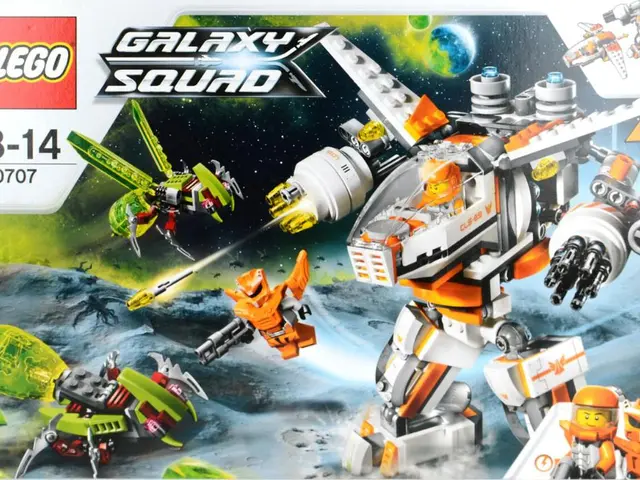"Upon the bursting of the bubble, the extravagant assertions regarding AI's capabilities in music production will be exposed as significantly exaggerated: debating the appropriate boundary."
In the rapidly evolving world of technology, Artificial Intelligence (AI) has made significant strides in various industries, including music production. However, as AI systems continue to develop and influence the music landscape, ethical considerations and limitations have emerged, requiring careful navigation.
AI systems, often referred to as Artificial Narrow Intelligence (ANI), are capable of outperforming humans at certain tasks, but they are not truly intelligent. They are data storage and retrieval systems linked to algorithms that predict what should come next based on context. This means that AI can only solve problems it has been trained on, and it does not understand, reason, or think.
One of the key ethical issues surrounding AI in music production is authenticity and originality. AI-generated music may lack the emotional depth, human connection, and originality that is often associated with authentic art. The worry is that AI music may not be considered genuine art, raising questions about its legitimacy.
Another significant concern is ownership and copyright. Since AI learns from existing copyrighted works without explicit permissions, questions arise about who owns AI-generated music. Is it the AI developers, the users, or the original creators of the training data? This ambiguity challenges the validity of creatorship and intellectual property rights.
Transparency and attribution are also critical issues. Without clear labeling or disclosure, AI-generated tracks can mislead listeners and undermine trust. Unlabeled AI music may harm real artists’ visibility and distort streaming platforms' integrity through automated flooding of AI-created songs with questionable quality.
Consent and voice cloning are further concerns. AI models can clone voices, sometimes without artists’ consent, potentially violating rights related to personality and publicity.
AI trained predominantly on Western datasets risks marginalizing diverse musical traditions and global voices, threatening cultural diversity in music. Over-reliance on AI tools might diminish human creativity and could threaten jobs for musicians and composers.
To address these ethical challenges, calls for transparent AI use include documenting AI involvement in music, supporting policy reform, implementing labeling legislation, and developing artist-controlled AI platforms to safeguard authenticity and fairness.
Despite these challenges, AI offers exciting opportunities to transform music production. However, it is crucial to navigate these ethical considerations thoughtfully, ensuring that the industry-wide policies and artist-led initiatives address issues such as authorship, authenticity, transparency, cultural respect, and effects on human creativity and livelihoods.
Interestingly, some reports suggest that companies are pulling back from their investment in AI and reducing their reliance on the technology. This could indicate a shift in the industry's approach to AI, as concerns about its ethical implications become more prevalent.
In conclusion, while AI has the potential to revolutionize music production, it is essential to approach its use ethically and responsibly, ensuring that it complements, rather than replaces, human creativity and artistry.
The emergence of AI in entertainment, particularly music production, raises concerns about the authenticity and originality of AI-generated music, as it may lack the emotional depth and human connection often found in genuine art. Furthermore, ownership and copyright issues can arise when AI learns from existing copyrighted works without explicit permissions, making it unclear who owns AI-generated music and challenging the validity of creatorship and intellectual property rights.




